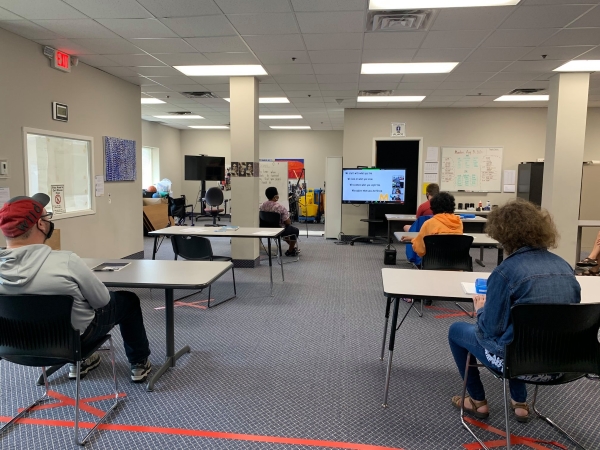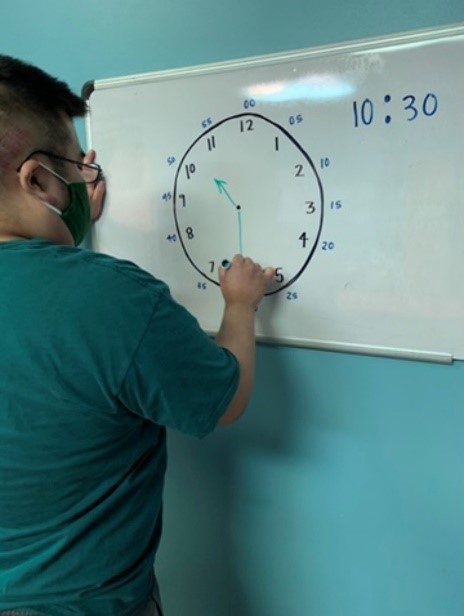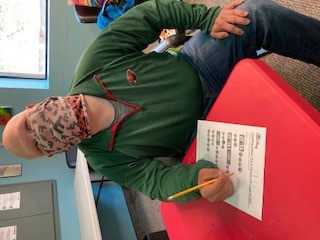PRI regaining ground, cautious, optimistic, hopeful

By Marc Skaug, Director of Day Services at PRI
The contrast between March 17, 2020, the day Partnership Resources (PRI) notified its clients and families of the suspension of program services, and June 29, 2020, when PRI’s limited capacity in-person services resumed, is stark.
From deep concern and fear, isolation, and a future unknown, to cautious optimism and hope, and the potential of a new beginning, it seemed like two very different worlds. After three plus months of mitigating and responding to the risks associated with the COVID-19 pandemic, surviving furloughs, fighting to “keep the lights on,” and planning for a new reality, PRI welcomed people with disabilities back to the places they’ve called their own, the activities that enhanced their lives, and to the people and the social connections they so dearly missed.
Coming back
The resumption of in-person services, and for some the experience of connecting with PRI’s virtual classes, contained some new challenges, but also excitement, energy, and the sounds of community. PRI clients returned to a new set of safety protocols, and also to familiar program opportunities that offered engagement, productivity, and socialization.
Health and wellness quickly became a clear and evident program need. From keeping oneself as safe as possible from the COVID-19 virus, and increasing their knowledge, to introducing some much needed physical activity, fears were addressed stress was managed. PRI clients were immersed in support and encouraged to share their thoughts and feelings, get active, and become more self-aware. Daily activities centered on wellness (e.g. Stretch and Move, Mindfulness, Music Therapy, Good Nutrition) were offered and well received.
 Socialization was key
Socialization was key
The reduction of social interaction was a common theme for many during the previous months. So, a portion of PRI’s program opportunities were geared towards connecting PRI clients with their peers, the staff who support them, and activities that contained social components. Examples such as a morning virtual “Meet and Greet” through Zoom allowed PRI clients to interact with peers in other classrooms-even though they could not do so in the same physical space. And, because cohort groups were small, many classroom activities incorporated responsive, interactive program options that encouraged conversation and relationship building-such as group story writing, where clients and staff collaborated to create fun, whimsical stories reflective of their experiences.
Days at PRI are different, with shifts lasting only three hours, and trips to preferred community destinations on hold as a precaution. But the desire to regain what had been put on pause remains strong, and PRI’s staff craft and implement an ambitious schedule of program activities that promote life skills, personal growth and self-expression, social connections, and creativity. Coupled with a strong complement of virtual classes offered each afternoon, PRI transitioned into a new manner and method of programming that serves the needs of as many individuals as possible (and for some, reintroduced the connections they have counted on for years). 